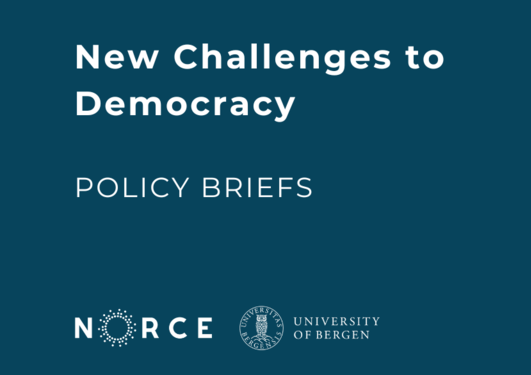How Generative AI Endangers Cultural Narratives
Jill Walker Rettberg writes on how American and anglospheric AI origins can overshadow cultural heritage from other countries in the world.

Main content
"Failing to take the cultural aspects of generative AI seriously is likely to result in the streamlining of human expression into the patterns of the largely American content that these systems are trained on."
In the latest Issues in Science and Technology – a quarterly journal by the National Academies of Sciences, Engineering, and Medicine – Professor Jill Walker Rettberg warns that generative AI might endanger diverse cultural narratives, content, and heritage, as it is trained on mostly American data and patterns.
Generative AI can replace or homogenize stories like When the Robbers Came to Cardamom Town (Folk og røvere i Kardemomme By), a children’s book and musical, well-known in Norway and Denmark, which reflect Norwegian criminal justice values:
"This story is more than a shared cultural reference—it supports the Norwegian criminal justice system’s priority of rehabilitation over punishment. It is distinct from Disney movies, with their unambiguous villains who are punished at the end, and from Hollywood bank heists and gangster movies that glorify criminals. Generative AI might well bury stories like Cardamom Town by stuffing chatbot responses and search results worldwide with homogenized American narratives," she writes.
These narrative archetypes give us templates to live by, she claims, and shape our possibilities for action and understanding.
Calls for more humanities in AI development
Midjourney, one of the largest image generators could not produce images of Black physicians treating impoverished white children, when requested by researchers. For more everyday examples, she mentions how Google failed to provide relevant results for her when she needed to install a new dryer, because it assumed that electric dryers were not common in Norway.
She calls for more humanities involvement in AI development, as it believes that AI needs to respect and enrich the world’s cultural narratives:
"Not just so I can figure out how to install my appliances, but so we don’t lose the stories that shape our communities."
Rettberg has also written on this for a policy brief about artifical intelligence and European culture in the collection "New Challenges to Democracy" for UiB, which will be presented for the European Commission and stakeholder organisations on January 23rd.
Reference
Rettberg, Jill Walker. “How Generative AI Endangers Cultural Narratives.” Issues in Science and Technology (): 77–79. https://doi.org/10.58875/RQJD7538

